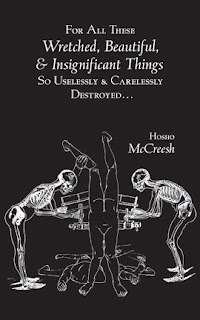
A Clock With No Hands. Poems By Tom Sexton. (Adastra Press 16 Reservation Rd. Easthampton, Ma. 01027) $16.
As a small press publisher, I have always looked up to the likes of David Godine, Jr, and Gary Metras, (publisher of the Adastra Press). Mr. Metras has been publishing poetry books since 1979, and if you examine his title list you will see such small press favorites as: Alan Catlin, Leonard Cirino, Michael Casey, not to mention the likes of Thomas Lux, Jack Gilbert. and the list goes on. Metras, who was recently profiled in Poets and Writers magazine, publishes wonderfully crafted books, in which production values, as well as poetry, are very important.
That being said, I have been in contact with Metras (a well-respected poet in his own right), and he will appear on my Somerville Cable Access TV Show ‘Poet to Poet: Writer to Writer’ this fall (2008) The latest poetry collection he sent me is “A Clock With No Hands,” by Tom Sexton. I have to say hands down that this is great stuff.
Sexton was born in Lowell in 1940. He went on to be one of the two professors who began the English Dept. at the newly established Anchorage campus of the University of Alaska. He taught there for twenty-four years.
The poems in the collection deal with Sexton’s hometown of Lowell, Mass, as he experienced it in the 40’s and 50’s. Thornton Wilder would be an admirer of this collection. Sexton acts like the narrator of Wilder’s “Our Town”, bringing out the flavor, the workers, the old factories, the canals, of this down-at-the-heels, old mill city.
I think readers who live in Lowell, as well as readers who never been near the banks of the Merrimack River could appreciate the poetry. Like all quality work it has that ‘universal” sensibility.
Being Jewish, I found the poem: “Rag Man” particularly touching. The man in this poem is sort of the “Merchant of Venice’ of Lowell. And the boy observing him finds out that yes, a Jew does indeed bleed like the rest of us:
“… Pray for the conversion of
the Jews,” the priest in the pulpit said.
“They killed Christ and have the devil’s
tail beneath their coats.” Mulligan said
he heard someone say that to his father.
I watch the rag man, scarecrow-thin,
below me on the street. No horns. No tail.
He gets down and takes something from
his pocket for his horse and then goes on,
the wet cobbles like skulls in his wake.”
Food for me has always been very evocative. A simple kosher hot dog can be more powerful than say, a Rembrandt or a Mapplethorpe. The poem “Hoare’s Fish Market” brings me back to a time when I visited the market with my late Dad. I can remember that first waft of the ocean when you entered the store, and the dead stare of the fish on their deathbed of ice.
“I walked to the market with my father
on Fridays to buy four pieces of cod
wrapped in paper soaked with grease
by the time we got back to our kitchen
where my mother and sister were waiting.
If times were good, my father bought
a piece for a neighbor who always called
it hake, or skate if he just wanted to talk.
Mr. Hoare, our Neptune in tall boots,
watched over it all: haddock and cod,
halibut, tuna, swordfish and salmon
all laid out on an endless bed of ice.
When he spoke, you heard the distant sea
with its vast multitudes that would always be.
Highly Recommended.
Doug Holder/ Ibbetson Update





































